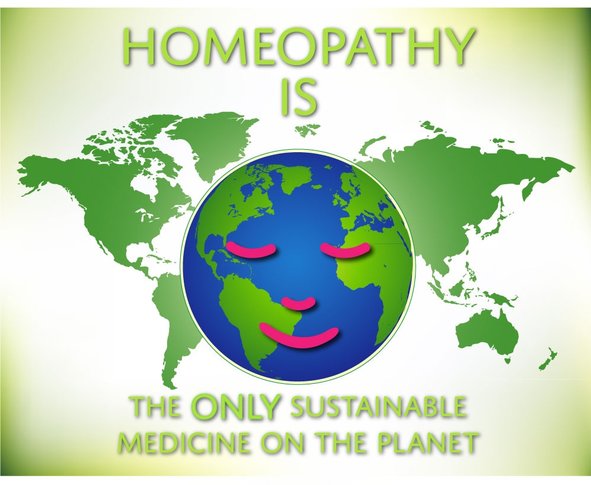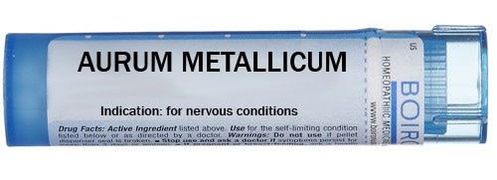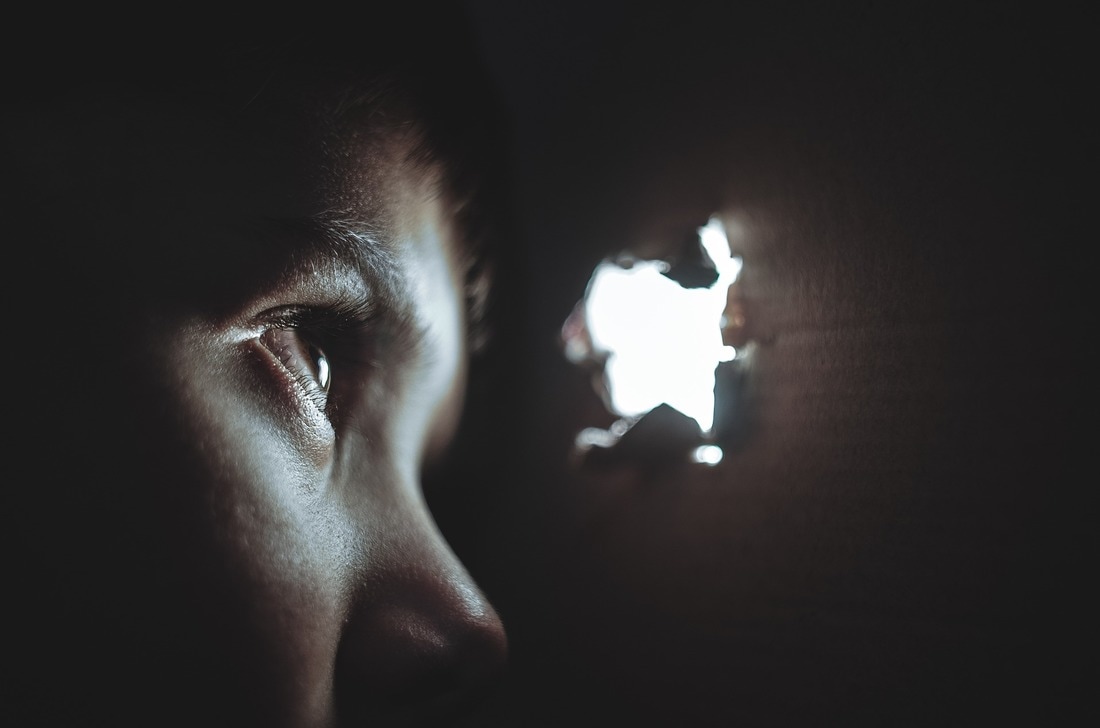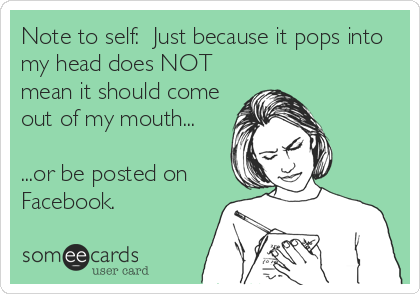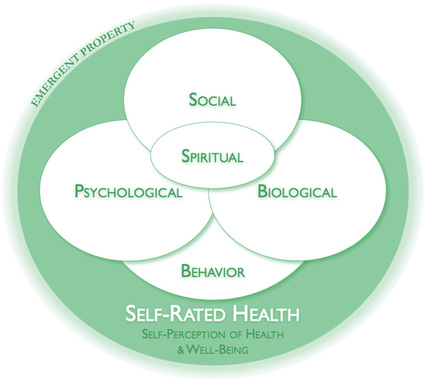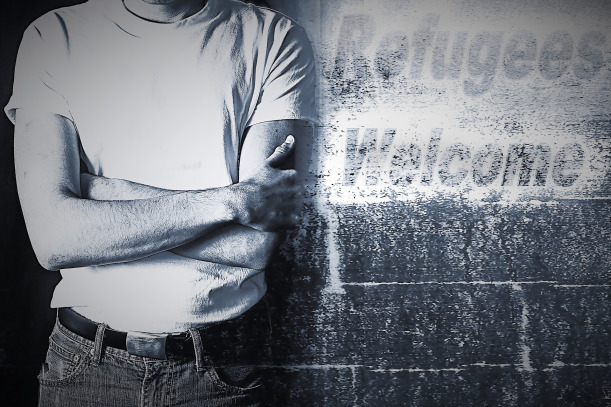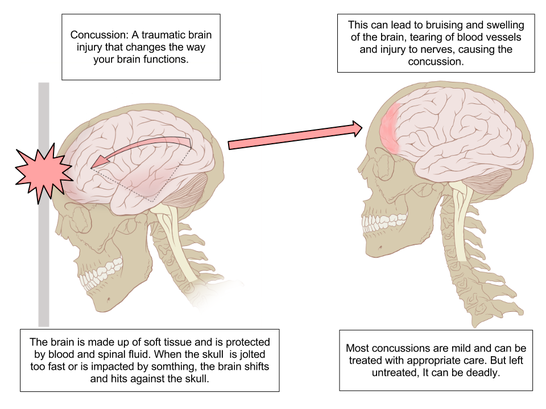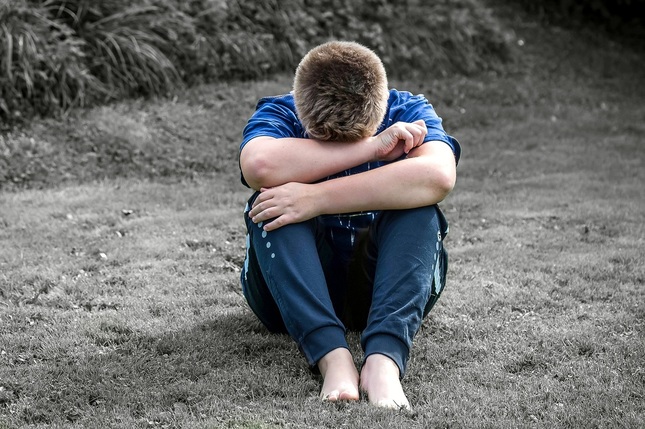|
What we can do? How can you prevent Lyme disease? What if you get Lyme disease? And what options are available for long-standing chronic Lyme disease? The standard medical treatment for Lyme is antibiotics. However, this may not work for everyone. Read on for ideas on prevention, acute treatment and natural treatments. The body knows how to heal itself with a little help. Natural Lyme prevention A natural way to immunize against Lyme would be to take the homeopathic Lyme disease remedy. The protocol is to take 2-3 doses of the Lyme remedy, also known as the Borrelia remedy, in a 200c potency. It is good to do this in the spring, spreading the doses out over a couple of weeks or more. Lemongrass essential oil is suggested to deter ticks. You can make a spray with water and use a bit of the oil to put on socks, shoes, pants and sleeves. It is safe to put directly on the skin since the oil is diluted. Tick removal If you find a tick that is attached, pull the tick out safely. DO NOT use petroleum jelly, a hot match, nail polish, or other products to force the tick out of the skin. This can make things worse and the chances of leaving the head of the tick in the skin are much higher. It also stresses the tick, which may mean greater discharge of toxic materials into the skin. Remove attached ticks with tweezers gently to avoid crushing the tick’s body. Grasp the tick firmly and as close as possible to the person or animal’s skin. With a steady motion, pull the tick’s body away from the skin. Do not be alarmed if the tick’s mouthparts remain in the skin. (Watch this Video by tick expert Kateryn Rochon) Homeopathically it is good to give a dose of Ledum palustre 200c while removing the tick. I will discuss the use of Ledum in homeopathic protocols later on. Cleanse the area with an antiseptic or lavender essential oil. You can put a drop of lavender oil at the site right away. It is antibacterial and antiseptic yet will not suppress any symptoms. You can also mix the lavender with coconut oil or other carrier oil to dilute the essential oil so it will not affect sensitive skin. Calendula helps the skin to repair and heal without scarring. There are some calendula wax-based or cream formulas available that would be good to apply after the lavender oil has set in. Another option is to use a Bentonite clay poultice to draw out anything left in the wound. You can add some lavender oil to the Bentonite poultice. Recovery from Lyme with Western medicine Going to the doctor will result in tests and antibiotics. There are cases where there is no response or an incomplete response to antibiotics. In these cases either oral or intravenous antibiotics are continued for months at a time. Some patients ultimately respond well to this aggressive treatment, others do not, or they may suffer extensive side effects from prolonged antibiotic use. For many with a strong immune system and vitality, the recovery is quick and effective. However, cases in which the symptoms return after months of an apparent cure, or never completely go away with standard or aggressive treatment, there can be serious suffering and health deterioration. Patients in this category are said to suffer from chronic Lyme, or post-treatment Lyme disease. This is not recognized by all medical systems and treatment is therefore often unavailable. There are also problems that can arise with only using antibiotics as a treatment. All bacteria create biofilms in the body. Similar to a house or roof, they build a stable place to exist. When under assault by the immune system or antibiotics, they form spherical shapes and can thus hibernate in a comatose state like a seed. They then constantly monitor the environment waiting for the opportunity to ‘wake up.’ They are more difficult to remove from the body when in this state. It is also well known that it is not advisable to take antibiotics over a long term. This can disrupt the delicate balance of the body’s microbiome and lead to problems with basic body functions such as digestion and assimilation. It is possible therefore that using only allopathic treatments can suppress symptoms that come back later, and residual effects can be carried for years. If you do not recover from antibiotic treatment, or have relapses requiring stronger antibiotics, this suggests there is an issue with your immune system response. Although antibiotics can help the body to remove bacteria, without the body’s own adaptive response and immune system response doing that work there is little chance of a full recovery. There are other treatments that can naturally stimulate the body’s immune and adaptive responses. They can help wake up the awareness of the bacteria causing the imbalance, and then the body can remove it gently and completely in most cases. The Herx reaction A Herxheimer reaction refers to the release of endotoxins where bacteria die off during antibiotic treatment faster than the body can remove the toxins. Symptoms can include fever, muscle pain, and overall increased Lyme symptoms. This reaction can produce symptoms more severe than the disease itself, and so care must be taken to help the body clear the toxins or to reduce the intensity of the antibiotic reaction. If the issue is blocked lymph nodes for example, then to do an intensive antibiotic course before addressing the lymph drainage would perhaps do more harm than good. Using Homeopathy to support Lyme recovery It is always better to treat the current and complete symptom picture of each individual, although there are many homeopathic protocols that may help for Lyme infections. Keep in mind it is possible to combine natural approaches along with antibiotic use, depending on what you feel most comfortable doing. However, it would be good to have the advice of a professional homeopath since antibiotics can complicate the body’s response to the natural treatments. After the tick bite If it is the first or second day of the bite, use Belladonna 30c or 200k to wake up the vital force and help rally the immune system to act. Indications are if there is any fever, redness, pain or red swelling. Also take Ledum 200c or 200k. Use only the Ledum if the bite has been there for a while, since the Belladonna is no longer useful once the acute phase has passed. The Ledum is excellent for insect bites and reduces inflammation and itching, redness with swelling, and throbbing pain. In the case that the person is freaking out and worried they might die after the tick bite, you can easily calm then down from fear with Aconite 30c or 200k. Give them one right away, and another dose shortly after if they still need it. Next steps The best course of action with homeopathics is to individualize the treatment if at all possible. With the help of a homeopath it is good to use the person's core or global remedy to help the body heal completely and fully. This addresses the previous issues that lowered their immune system response and increased their susceptibility to contracting the Lyme disease. This is best done with a professional homeopath, who will determine the complete set of symptoms and then match that to a remedy picture. A homeopath will explore much more than just the physical symptoms and this unusual approach is only one principle that sets them apart from a general practitioner's methods. After finding a core remedy or specific protocol, a homeopath can suggest the dosage, potency and duration of the chosen remedy. They can also suggest when to switch remedies, or if adding other remedies would be helpful. This makes healing a collaborative process between you and your homeopath, allowing for the best possible outcome. Other remedies After the initial protocol or core remedy, it is possible to use other remedies for particular symptoms as they appear during the healing process. When someone is irrationally afraid of Lyme disease, consider Syphilinum. Their fear will often lead to a profound aversion to dirt or to touching dirty things. Lyme is similar to the Syphilis bacteria. There is an acute phase, dormant phase, and a progressive chronic phase where it gets worse with time. As mentioned above, an acute state of panic and fear of death can also be helped with Aconite. Homeopathy can definitely help with the feelings of despair, depression or even suicidal thoughts that may result from chronic Lyme disease. Pharmaceutical clean up In the case where antibiotics or other medications have been used, it can be good to do a drug detox for the system. Sometimes this is required before using natural protocols so the remedies can act fully to initiate the body’s response. This is mostly indicated in sensitive or very fatigued persons, although it can still be helpful for most people. There are various protocols that can help the body detox. Food and Diet Whole food supplements can also boost the immune system and help with fatigue. They can be used along with the homeopathic protocols and/or antibiotic treatment. Spirulina contains essential amino acids, iron, protein, B vitamins, and vitamins C, D and E and supports the body, boosts the immune system and helps with recovery from fatigue. Bee pollen is also a potent whole food supplement. It contains beta-carotene, lycopene, zeaxanthin, the complete B and E complexes, vitamins C and D as well as protein and trace minerals including iodine, magnesium, and selenium. It is known as the most complete single food on earth. Organic alfalfa is one of the most mineral-rich foods with optimal levels of magnesium, calcium, potassium, and trace minerals such as selenium, copper, sulfur, and zinc. These minerals are in balance naturally and promote proper absorption. I prefer these natural whole food supplements to taking specific or multi vitamins that can be synthetic, unbalanced or difficult for the body to absorb and use. Post-Treatment Recovery It is important to rebuild the physical structures that were affected such as the collagen tissues, where the bacteria get most of their nutrients to survive. To rebuild the affected structures you can use homeopathic supports, nutritional whole food supplements and herbs, as well as a strong whole food diet. The areas mainly affected will show up in the symptoms that are expressed in each individual. It might be in the brain as neurological diseases, the joints as arthritis, or the heart as heart disease. There will most certainly be a nutrient deficiency. Quinton’s Plasma is a good tonic to restore nutrients in the more serious cases that have lead to long-term fatigue. Mycoplasmas scavenge B vitamins, so taking whole food supplements can be helpful along with eating different whole foods that contain the range of B vitamins. If they have disrupted the GI tract, this can cause bowel permeability. Taking Aloe Vera gel for a short time can help repair the mucosa. It may also help to change your diet temporarily, reducing foods that cause any inflammation or irritation. Homeopathic intestinal flora remedies can also help with recovery in this department. After using antibiotics, it is important to repopulate the digestive tract with healthy bacteria again. You can consume raw or unpasteurized fermented foods that still have living beneficial bacteria. There are many probiotic foods as well such as plain yogurt and kefir. Also important are foods that offer prebiotics such as onions and under-ripe bananas. These contain the food that the healthy bacteria need to survive and grow once they are inside the digestive tract again. For a more intensive recovery, the Genestra HMF probiotics are human-sourced proprietary strains that adhere better to the gut lining and more efficiently colonize the intestinal tract. Most probiotics just pass through the intestines and so continued use is required. Many of the Genestra strains will actually repopulate the internal flora for the longer term. Homeopathic Tissue Salts can be very useful in a wide variety of functional disorders and physical symptoms. They are based on the 12 essential minerals the body needs to repair and maintain itself, and they help to regulate and restore these minerals and their functions. There are other homeopathic supports that can be used as well and if often depends on the homeopath's familiarity with each system. Other methods to consider alongside conventional medication include following the GAPS diet, osteopathy, cranial-sacral therapy and Traditional Chinese tuina massage and bone setting. It is not recommended to have acupuncture during homeopathic treatment as both methods are energetically based and may counter act each other. There is a natural way to support Lyme disease, and to recover our lives and rediscover our potential! ~
I offer support for Lyme disease all over the world via Skype or, at my office in Montreal, Quebec. Ask about a free 15-minute consultation. It is possible to work with the use of antibiotics, medications and other treatment protocols or to use a totally natural approach. How does holistic treatment support healthy living? Why try homeopathy? Having a life long study in the principles of nature and healthy living, Lauren Trimble DHom, Nd is happy to share her knowledge and experience. The art of retuning the body’s natural healing capacity & developing consciousness in a compassionate and gentle way is the gift that homeopathy brings to her current holistic practice. If you enjoyed this article find out more at Birdsong.
0 Comments
Homeopathy is the only healing practice we currently have that offers long term sustainability. There are healing practices like shamanism or energy healing, but as one of the complete medical systems, only homeopathy offers a Green solution to our ever increasing environmental concerns. More and more people want to make changes in their diet, their consumer choices, their personal care and cleaning products, yet it is also possible to make choices that supports and promotes sustainability in health care.
Part of sustainability’s Triple Bottom Line includes addressing the needs of the Planet. The extraction of non-renewable resources should be minimized and extraction of renewable resources should not exceed the rate at which they are renewed. The absorptive capacity of the environment to assimilate wastes should not be exceeded. Homeopathy does not degrade our environment or health. “Homeopathy is ideally placed to be part of the solution, rather than part of the problem. Homeopathy is one of the greenest medical modalities. It has a very small, sustainable footprint, it doesn’t pollute, it’s not tested on animals and the experience of taking a homeopathic remedy often awakens us, at a profound level, to the inter-connectedness of all living things and helps us to recognize suppression both on an individual scale and on a global scale.” Mary Aspinwall. 1. It takes very little of the original undiluted substance to make a homeopathic remedy. For example, one honey bee can make enough Apis remedy to help thousands of people. It is the transformation of the medicine from the material form (matter) to energetic signal (information) that makes this possible. Using homeopathy therefore has a very small footprint on the environment and on other living creatures. 2. Except in experiments or clinical testing that copy the modern scientific model so they can be published in research journals animal testing is never used in homeopathy. Neither are remedies tested on unhealthy or vulnerable people. (Don't get me started on the huge medical research industry in Quebec that depends on impoverished and sometimes desperate people to be paid 'volunteers' in pharmaceutical clinical trials and tests.) Remedies are 'tested' on healthy people who are willing to participate in the homeopathic proving process and this method is the original source of the double blind study method. 3. Because so little source material is used and the process is one of dilution and dynamization there is no danger of polluting the earth’s water supplies or oceans during the production of homeopathic remedies. 4. The remedies do not contain any toxic material or matter that can be eliminated as waste from the human body. Unlike pharmaceuticals and herbs that can end up in the water supply or the soil, and even in the plants and animals we might later eat, homeopathic remedies do not pollute. 5. The process of homeopathy involves the case taking session and then the research and contemplation done by the homeopath. Rarely do tests or expensive machines improve the remedy selection process and therefore the healing process of the individual. All that is needed is the time to sit with the person and listen, and the highly skilled training of the homeopath. There is little need for expensive facilities, and there is rarely any medical waste needing to be disposed of. The more we understand that homeopathy offers us a sustainable and green healthcare, the sooner we can shift our choices in that direction. Otherwise it may be by necessity alone that it becomes the medicine of the future. A classical musician concerned about a solo singing performance the next day came to see me for a last minute acute case. He had been sick the past five days with a cold and the symptoms of serious congestion, coughing, difficulty sleeping and fatigue. He had been taking several homeopath remedies on his own to get through the phases of the cold quicker but was getting nervous about how his throat and vocal cords would be by the next day. For a choral gig he would not be so worried, however since this was an important concert for his advancing solo career he was worried about his voice! He had a long history of congestion and ENT issues as well as taking cortical steroids and Benadryl for about ten years during school and the early part of his career to manage his mucus and inflammation. This approach actually made things worse over time as well as creating a dependency to using them. A colleague recommended that he try homeopathy and he was amazed at the quick action of Sinusalia for sinus relief. Wanting to try a more gentle and natural approach to his health issues rather than pharmaceuticals and drug dependency, he saw a MICH method trained Homeopath and was able to get off these medications within a very short time. Over the next couple of years he has been steadily been improving the ENT issues as well as food sensitivities and allergies and related digestive system issues. Most of the digestion and food related issues have cleared up and the ENT was also improving. He noticed that this acute situation was a return to earlier symptoms and feelings and due to the importance of this performance he decided to get my opinion rather than to continue to self subscribe for the acute cold. We did a session, which included the physical symptoms, and some imagination and sensation based exploration. Once I was able to see some repeated themes and sensations I was able to start to move to the next phase of focusing him on filling them out more. Some of the themes that repeated were: Royalty & castle: To him the community of singers has sensations of royalty, it glows, glitters, there is colourful light, honour and stability, magic. It is a glittering kingdom of which he feels honoured to be part of. When he has a performance it is as if he is rejoining royalty. And he was concerned about not causing a riot, mucking things up, disturbing the people who live in the castle, the townsfolk. He saw the castle as self contained, high above, in the heavens, shining, beside the sea on a large pile of rocks. He also felt that the community was whole, it had no holes in it, was viscous and dense, the wholeness was nurturing the kingdom versus how he saw that outside the kingdom was like a patchwork quilt, full of holes as if eaten by moths, without communication and not taken care of. When I asked about his Performance he responded that it was sad when things are cut down from their full potential, the light dimmed, it needs to be fully lit, like a sea creature of some kind, the light goes on for miles. Communication was important to him in this way: I would prefer to be heard, that they accept what I say rather than be understood. To fail is for momentum to end, illusion to be revealed, as if I am deceiving others, about who I am. This linked to betrayal, if I am in the less than ideal practice room, it will be exposing parts of my voice that don't need to be shown. Instead of being generous, loving and alive, it is static and dead. Sharp or dull: Clarity sharpens, like a blade, so things are less dull. He did not like when the connection is dulled, as above in not being heard, and when phlegm dampens/constricts the sound of his voice. There are these fine, bright edges that create the shimmer. Lost shimmer equals a dullness in his voice. Sea creatures: He explored the image of a sticky worm constricting his voice, with stringy bits. Then it was as if he was missing the meat/substance (that he equated with humanity), and there was the light only (that corresponded to purity and warmth). He had an interesting way of seeing his phlegm as he cleared it out. For him it was like giving it a chance to leave the nest, it was done with care, as if they were tadpoles or young fish. He realized that if it is in the way he no longer has as much love for it, yet he has to be respectful towards it. Once it is immobile, he no longer favours it. "If I can show it the path to go, great beautiful, if it is dead, I can't do this. I can't reason, reassure, take care of it, or work to keep it alive." He had the image of barnacles that can get in the way of painting a boat. He also had the image that his phlegm was as if he could shuck open his nose and leave just the shell, that would be great. The nose felt alive yet the chest felt like it was drying out, as if it was sediment or dry sand. Small separate vs large whole: The image of looking for seashells on a beach, which were valuable and beautiful, and the beach he related to freedom. Or the image of caviar eggs stuck together, one comes out in each chunk of phlegm. Also the patchwork or the wholeness of the kingdom mentioned above. Water: His mental images were in sea colours, and the sensation was that what he was looking at spends time on the beach but also deep underwater. I could start to see these themes emerging as we spoke. I was totally lost however, and I had to just sit in the discomfort of knowing that I would not know what he was talking about right away. I looked over the notes and picked out some key themes and asked him to fill them out further. I was curious about the shells and sand realizing as we talked that castles are made out of sand and that water has blinding light when reflecting the sun. I was hoping to find a link with the sea creatures and physical matter with this need for shiny, shimmering light. He continued to describe images related to the sea and maybe a sea creature like an oyster or clam. I looked at my Material Medica as I was starting to feel a Calcarea Carbonica remedy, yet it did not cover the light or castles. I found that by adding phosphorus it would include the shimmering light and the need for the social connection he got from the kingdom/community of singers and that it also covered many of his physical symptoms. Calcium as a remedy has a need for structure, protection, security and this equates in their being responsible, grounded, steady minded, etc. Anything that stresses them will stress their structure. They often feel feeble and not up to a task. In remedy making it is sourced from Calcarea, the snow white portion of the inner oyster shell. Phosphorus on the other hand enjoys activity, energy transfer of relationships, is sensitive, has a high need for attention, love, consolation, support and they are highly social. Here anything that stresses them will stress their social situation and social connections. Phosphorus is about bringing light, spreading the word, communication. On the physical level it helps irritated, inflamed degenerated mucous membranes, irritated and inflamed serous membranes, destroyed bone, especially in the lower jaw. In the chest the combination of these two minerals as the remedy Calc-phos helps with recurring infections, nose colds that go to the chest, lingering tickling coughs, pneumonia, chronic bronchitis, and asthma. It also helps with inflammation and degeneration of the mucous membranes, the stomach and bowels. For a clinical use it is good for convalescence from severe acute diseases, lungs, and regenerative function of nervous tissue. It is also helpful for emotional states of feeling rejected or feeling unloved and for the fears of illness that can cause anxiety. Sand is basically Silicea minus the crushed up sea shells and he had been taking a low potency regularly for the past months to help clear out lingering mucus from his ongoing mucus in his chest. I decided to give him the Calc-phos at 30c and Silicea at 30c instead of the lower potency to take alternately that night and if needed in the morning. Both were for the first aid acute situation to get him congestion free as fast as was possible for his body to do overnight. Things can change quickly in an acute situation. He contacted me the next morning in a panic. Now he was definitely not sure of his ability to sing and was considering cancelling last minute, a choice that he felt could jeopardize his future opportunities with this particular music organization. I had found the right remedy for his particular experience of his main complaint, the congested phlegm. I was considering after the last session that after this busy week of a concert and auditions he could try the Calc-phos cell salt as a constitutional to take daily for a few months to see if he could rebuild the inner structures of his nose and throat after having chronic issues in his ENT region for so long! However, because the congestion had been relieved overnight, that also changed the inner shape of his throat and cords and he was panicking about not being able to adjust to the related vocal changes at such last minute. There was also a sticky mucus now on his vocal cords so he was cracking on the high notes as he was practicing. I did another acute emergency case taking adding in whatever new symptoms he was experiencing. He expressed how he felt about making this cancellation phone call. The Calc has the feeling about not being up to the task, but this was more, it was a much heavier sense than just a duty to perform. It was also about his mentor that he looks up to and the importance he places on his blossoming solo career. I have worked with singers and remembered reading that Aurum is good for classical musicians and leaders of orchestras (according to Peter Chappel in his book Emotional Healing with Homeopathy, Treating the Effects of Trauma). I decided to look at the Materia Medica for Aurum and there was the need to take responsibility and withstand very high pressure, to perform even in adverse conditions, even the need to be highly responsible in every circumstance. There was the strong need to maintain his career, to hold on to achievement and praise, to keep up social and others' expectations of him. He imagines he has lost the affection of his friends and this makes him sad, even unto tears. This singer had mentioned before that he was able to perform great feats when he sang that were impossible. This was also in there, one must perform tasks which are impossible or much beyond his capacity. I had not remembered that Aurum addresses the nose and congestion. There can be a boring at the root of the nose, severe sinusitis, headaches at the inner angle of the right eye and at the root of the nose, and nasal obstruction. Clinically it can help with sinuses, anxiety, headache, and sinusitis. Aurum is made from gold, and is not usually a first aid remedy for something like a cold. However, in this intense live or die moment, it did the job. Thinking back to the description of castles and royalty and how much importance he placed on the ability to perform at such a high caliber and the remark that he is usually sick when working with this music organization, it was also there in his first case taking, and neither of us saw such intensity of the situation until the following morning. He was very emotional and anxious when he took the Aurum and immediately calmed down. He was able to focus and he continued to warm up and steadily his voice improved. He let me know that within an hour he regained his confidence and was singing they way he had in rehearsals for the upcoming performance. And that he was able to continue to explore a new level of singing that was freer and more passionate than ever before.
He did not have to make that terrible call and two days later he let me know that he performed magnificently and was given high praise. Homeopathy had saved the day, and without it he was sure he would have been in agony with a sinus infection for several weeks. He was also going to take the cell salts to see how that changes his ENT region over the coming months. With the hep of homeopathy he could enjoy the golden glow of success. ~ How does homeopathy support healthy living? Why try homeopathy? The art of retuning the body’s natural healing capacity in a compassionate and gentle way is the gift that homeopathy brings to Lauren Trimble's natural and holistic method. If you enjoyed this article find out more at Birdsong. Hidden just under the surface, anxiety is something we all experience. Anxiety is the experience of worry, nervousness or unease, and is typically linked to an upcoming event or something with an uncertain outcome. Education and outreach on mental health used to focus on depression but a review of 48 studies from across the world suggests that anxiety is now a much larger problem. In the past decade, anxiety has sky rocketed to epidemic proportions, especially in the United States where over 40 million people or 8 in 100 people experience unhealthy anxiety.
Medical solutions Xanax, Valium and Ativan are some of the benzodiazepines doctors prescribe to patients who are suffering from the effects of stress and anxiety. Sometimes anxiety is diagnosed as a depressive disorder and they prescribe selective serotonin re-uptake inhibitors (or SSRIs) such as Prozac, Cymbalta or Zoloft. These medications are known to stop anxiety or a panic attack within 30 to 60 minutes and generally last 11 to 20 hours. While they may at first seem like a godsend if you struggle with anxiety, there are many reasons to avoid taking them. In Chinese medicine they say, wherever there is a ‘front’ there will also be a ‘back,’ and these drugs have a very big back. According to Hahnemann,”All medicaments produce two quite opposite states in the human body: the primary effect which manifests itself when the remedy begins to operate, and the secondary effect which appears only after the lapse of several hours, when the primary effect has ceased.” An example is how a laxative purges the bowel shortly after consuming it, but the next day constipation follows. Another example is drinking coffee that at first awakens and energizes, then later creates tiredness and lethargy. This is why the afternoon cup of coffee is so necessary for long term coffee drinkers. This is known as the secondary effect of medications so taking any medication, although providing an immediate relief, will have a bigger back so to speak. There are still gaps in the science. Medical researchers do not know the exact mechanism by which benzodiazepines work. It is believed they raise levels of the calming neurotransmitter gamma-amino butyric acid (GABA) or increase GABA receptor sensitivity. GABA deficiency is linked to depression, anxiety and PTSD, insomnia and drug and alcohol dependence so the theory that improving GABA levels would reduce these symptoms is logical. In the big picture though, the overall effect of benzodiazepines on the body is not known. It is no secret that medications often have a long list of potential side effects and how they might affect each person can’t be predicted ahead of time. Benzodiazepines in particular are known to develop an addictive dependency. This makes these medications dangerous to stop and the person can either take them far longer than is recommended, or they have to carefully wean themselves off with medical supervision. Also, medications are given for a disease label rather than the unique set of symptoms that represent the underlying state of the whole person. It is known that treating symptoms superficially and not treating the deeper source issues may act as a temporary palliative and does not often provide a lasting solution. It can in fact suppress the natural expression of symptoms and lead to more grave health issues in the future. A symptom is like a white flag calling for attention and support, but it is not the real disease. Natural solutions Relief from overwhelming anxiety problems can come in many forms and there are many solutions that are natural. They do not need to forcefully change the brain’s chemistry and have possible side effects. Some of these include the more well-known methods such as cognitive behavioural therapy, hypnotherapy and high intensity interval training as well there are alternative methods such as meditation, dietary changes and seeing holistic practitioners. Homeopathy is one natural solution that has shown to be very effective for anxiety and stress. Stress has emotional and physical effects directly related to the person’s response to inner and outer pressures and perceived fears or conflicts. Long-term stress can develop into anxiety and each person expresses behavioural, mental and emotional symptoms. During a homeopathic session the mental and emotional state of a person, the physical symptoms, the perception of the person towards their experience, their susceptibility, a complete family history and whatever else the person brings up are addressed and explored by the homeopath. In allowing for the whole set of symptoms to be explored, this leads to discovering the deeper experience of the person and their inner state. The homeopath will then reach a remedy choice that can help the person with the root issues that produce anxiety. Einstein said that, ‘We can not solve our problems with the same level of thinking that created them.’ Homeopathy accesses the natural principles of healing and does not rely on mental therapy to get us out of the loop of our own thinking process. A lot of the common tools and techniques such as graduated exposure therapy, slowed breathing or distraction are useful and can help manage anxiety and keep a person functional, however getting to the root issues can make real and long term change possible. With the help of homeopathy we are able to fill in the source of both what inspires the individual and of the unhealthy state that produces disease. This is the beauty of it, the homeopathic process can help in cases of depression, anxiety and stress without causing further harm, and without or in conjunction with medications. Einstein knew what he was talking about when he said that we can only solve our problems with a different level of consciousness than where we started with it. Holistic healing approaches are one way to shift levels and see profound results. The effect of being bullied can have long-lasting effects and be very traumatic. It can lead to chronic anxiety and stress, and if it happens during childhood the effects can be even more intense. There have been many headline stories of young people ending their lives after being repeatedly attacked by bullies at school. What can we do to protect our children and ourselves?
An urban issue? The world population has nearly doubled since the year I was born and since 2009 the majority of people on the planet are now living in city environments. This has lead to increased levels of tension, aggression and stress that we deem as the new 'normal.' It is the nature of the urban beast so to speak, so we have to live with it. The word scapegoat refers to a person who is compelled to bear the burden of someone else's guilt, or to symbolically bear the burden of sin. It is essentially a release valve for tension and stress as well as aggression. I was watching a wonderful documentary, The Hidden Life of Wolves, by Jim and Jamie Dutcher and discovered that in wolf hierarchy there is an omega role. Although the observations of the omega have been made mostly in unnatural settings such as in captivity or living in close proximity to human observers (and so may be exaggerated to truly wild wolf behaviour), this mirrors the way most humans are now living in relatively unnatural environments that are enclosed and overcrowded so it is perhaps relevant. A need for the omega? According to the Dutchers, the social hierarchy of a pack is what maintains order dictating who makes decisions, who mates with whom, who eats first and who eats last. Although wolves are very affectionate and playful, this order is constantly reinforced by displays of dominance and submission. The lowest position in the pack hierarchy is one or more wolves, usually a male and a female, known as the omegas. These wolves are dominated and pushed around by all the other wolves in the pack. The only apparent consolation for the omega wolf is that they are typically the jester of the pack and are the one who starts up play and chasing games, perhaps to diffuse these very tensions. You can hear the concern and worry in the Dutcher's narrative about a favoured wolf that is given the role of omega. "When I first recorded his howl, I was amazed at what was coming through my headphones. Lakota, eyes shut and head thrown back, was just pouring his heart out. His rich, mournful voice soared into the evening and hung in the air for what seemed like forever. I actually found myself welling up at the sheer beauty and expressiveness of his song. I felt as though I were listening to him sing the blues, giving voice to all the loneliness and pain that his social position brought him. Even when new pups were added to the pack in later years, no member of the Sawtooth Pack ever came close to comparing with the beauty and sadness of Lakota’s howl." Who is the omega? Once the role is determined, the omega wolf seems to be left without any other options and he must play the role utterly and completely each and every day. He has been delegated to a role not of his own choosing. Even if it seems unjust or unfair, the only way his role changes is if another wolf is given a lower rank. As this omega bears the brunt of the tensions and aggressions of the pack one or many of the wolves assert themselves over him and he will flip over onto his back whimpering in surrender. Generally this is a bloodless exchange but at times, especially during the breeding season, it can get vicious and extremely difficult to watch. Essentially the softest and gentlest of the group needs to become assertive and aggressive to simply maintain his space, have access to food and not be attacked. Watching the wolves' aggressive behaviour around the omega is similar to the disturbing video I saw recently of a group of young people where the bully is beating on another girl, ending with the bully standing over her and hitting her while the girl is cowering and covering her face. The rest of the youth looked on, no one moved to get involved or stop the violence. According to Glynis Sherwood, "Usually they are either sensitive, unhappy, vulnerable, ill and/or the outspoken child or the whistle-blower." We make weakness, difference or threat to social order into something separate and maintain that isolation through violence and aggression. The role of scapegoat does not have to remain throughout life however. And the idea that we can stop bullying by campaigning and educating people about the bully's behaviour only goes so far. What we can do about bullying? It is the inner world of the person that needs support, their perception of themselves in relation to the world around them is what is possible to change. A bully is a force of nature looking for an outlet, how can someone no longer be a suitable receptor? I have seen in my own experience how a core homeopathic remedy can change our inner experience profoundly. The child who has an illness can be given a chance to regain their strength, the unhappy an opportunity to discover their joy, the vulnerable a means to develop their strengths, the sensitive an avenue to explore their talents, the outspoken support and encouragement for their voice. In my own experience a core remedy was like going from a 40-watt bulb to a 100-watt bulb. Suddenly who you are burns brighter and gives off more light. This approach will not directly change a bully’s behaviour, but if it enables the bullied person to feel stronger and less vulnerable, then they often find that they cease to be the target of bullying. With an increase in self-esteem and confidence the cycle can be broken naturally without confrontation and blame. The child can then see a reduction of stress and anxiety and continue with other methods to help recover from the experience and to move on with their life. ~ How does holistic treatment support healthy living? Why try homeopathy? Having a life long study in the principles of nature and healthy living, Lauren Trimble is happy to share her knowledge and experience. The art of retuning the body’s natural healing capacity & developing consciousness in a compassionate and gentle way is the gift that homeopathy brings to her current holistic practice. If you enjoyed this article find out more at Birdsong. Anxiety is an individual experience
Extreme anxiety can arise with no apparent reason in certain children, but usually a child is susceptible to specific situations or events. These can include a major life change such as moving to a new city or school, or changes at home such as the parent's separation or a new relationship. Other susceptibilities can be witnessing a distressing event, or being in an upsetting situation such as emotional abuse or bullying. If the child is different in some way such as being LGBTQ or having a visibly noticeable difference such as a birth mark, that can also trigger anxiety. However, we have all observed that what upsets one child has no effect on another child. What to look for? How can we tell if a kid is experiencing anxiety that is unhealthy? With young kids we tend to give a lot of tolerance for personality and individual character or for situations that are obviously difficult. Usually we can say, 'just give it some time and they will find their footing.' Or we can discuss the situation with them and then see if they outgrow a phase. There are things we can look out for such as sudden changes in behaviour that seem out of character or are not the usual growing pains. If a child has unexpected changes of their feelings, such as a happy child that is suddenly worried, guilty, angry or fearful this is something to observe closely. When the emotions do not shift naturally and seem to get stuck on only one 'channel,' that can point to a lack of adaptation and spontaneous response. Hopelessness and rejection can be signs of something deeper, and if left unaddressed may lead to more serious issues such as depression, a desire to self harm or even of suicide in later adolescence. Also, for older children, the use of drugs or alcohol, especially when they are alone can signal a need for soothing, coping and numbing out uncomfortable thoughts and feelings. It is also important to notice if they are complaining of physical symptoms like frequent headaches or stomachaches, if they have problems eating or sleeping, or have a general lack of energy. Take notice if they start to make odd or repetitive movements such as when they are playing or resting. It is good to observe as well if they start to avoid things that before they enjoyed or liked, if they are suddenly less social or interested in being with others. And if they show any signs that they are having trouble coping with regular activities and normal everyday challenges. What if I don't have a diagnosis of anxiety for my child? Observable signs and symptoms determine unhealthy anxiety in children. In older children they may also be able to provide their inner experience of physical symptoms as well as thoughts, imaginations and dreams. An official diagnosis can be difficult since behaviours such as shyness, anxiety nervousness, strange eating habits, and outbursts of temper can occur as a normal part of a child's development. It is important to be able to discern if they happen very often, last a long time, occur at an unusual age, or cause significant disruption to the child's and/or family's life. It can be reassuring to have medical tests and a diagnosis since a child is unable to fully express or understand their own symptoms and inner experience, but in some situations they may be too costly or unavailable. When there is a diagnosis and the doctor is doing tests, this can help to direct the course of action to take. With homeopathy however, there is no need for a specific diagnosis of anxiety, a serious concern is enough to warrant a trip to the homeopath. Then in collaboration with the parents, they can see if there is a general remedy to help with the stage and adaptation that the child is struggling with. In more serious cases when something is definitely wrong, it can be good to give a deeper, more individualized core remedy to help the child with all aspects of their life and to give them an opportunity for more healthy development and balance. Homeopathy is a completely natural approach and instead of prescribing medications or lengthy therapy, a few sessions can often determine the situation and resolve the issue or with the suggestion of a remedy or remedies this can help the child to naturally resolve their issue. By naturally adapting to their current situation a child can develop greater resilience, a stronger immune system, develop their individuality and reduce the level of toxicity or stress that medications may cause. ~ How does holistic treatment support healthy living? Why try homeopathy? Having a life long study in the principles of nature and healthy living, Lauren Trimble is happy to share her knowledge and experience. The art of retuning the body’s natural healing capacity & developing consciousness in a compassionate and gentle way is the gift that homeopathy brings to her current holistic practice. If you enjoyed this article find out more at Birdsong. “Help, my child has anxiety!”
According to the Canadian Mental Health Association anxiety disorders have been found to be the main mental health problem affecting young children and adolescents today. Although anxiety is a perfectly normal response to everyday stressors, not every child copes with or experiences anxiety in a healthy way. If left unaddressed excessive anxiety can affect how children do at school, how well they form relationships with others and can disrupt normal development, all of which might affect them later in life as adults. Is there a natural option? Homeopathy can help with various issues related to anxiety including the more extreme types such as hyperactivity, OCD, oppositional defiance, anger issues and developmental delay. The professionally chosen remedy can help to improve the child’s concentration, moods, sensitivities, irritability, and can improve the overall wellbeing of the child. Homeopathic remedies are usually quick acting, easy to administer and are given infrequently. When individualized holistic treatment is followed the improvement can be long lasting and often negates any need for long-term medications. Although each child’s situation is different, anxiety and related issues often improve within a few weeks. The symptoms will tend to reduce in intensity and frequency, and then fade away. If they return, several options are available such as repeating the remedy, selecting a new remedy or increasing the potency of the original remedy. Often, as the child grows and develops their experience changes and different remedies are given in each new stage. Why a natural approach is worthwhile? Besides the basic developmental and intellectual growth, parents want their children to be happy and emotionally self-regulating. In the process of learning and experimenting, a range of anxiety, frustration and mood swings are expected during the growing years. Some of the things that cause anxiety can be new situations, the craving to excel and improve, and the discomfort of not understanding or of not being able to do something. These can lead to crying, fretting and whining. A healthy child gets fully into the reaction and then gets over it quickly. They are open to being comforted and to learning about their experience. If the reactions are pronounced, overly repetitive, continuous or a general hindrance to a generally happy life, it is time to consider that there is an unhealthy level of anxiety occurring for some reason and a visit to the homeopath can be in order. It is important that children develop the appropriate age related skills and learn how to experience anxiety and other difficult emotions. It is important to understand that homeopathy is not a way to remove or suppress this discomfort. What it can do is to reduce the extreme reactions and improve the adaptation and resilience that children need to develop and grow. It can also help with the delicate individuation process that allows a child to develop into their inherent potential, to improve their vitality, to build up their natural immune system that is intrinsically tied to their individuality and to ensure a healthy and happy adult life. This individuation process is governed by unconscious playful learning, conscious exertion and by contracting and recovery from childhood illnesses. The use of medications and other suppressing treatments can disrupt this delicate process. Young children were never given the number of medications or the types of medications they are getting today. A natural and more holistic approach using homeopathy and naturopathy can provide the necessary tools that encourage healthy growth and development for each child and improve their general health and well being. Anxiety does not have to be a lifelong debility for your child or affect them later on in life. ~ How does holistic treatment support healthy living? Why try homeopathy? Having a life long study in the principles of nature and healthy living, Lauren Trimble is happy to share her knowledge and experience. The art of retuning the body’s natural healing capacity & developing consciousness in a compassionate and gentle way is the gift that homeopathy brings to her current holistic practice. If you enjoyed this article find out more at Birdsong. Unfortunately, a lot of us develop anxiety and tension around the holiday season. The reasons can be multifold but the result is usually the same. Sitting at the dinner table with family members who, for whatever reason, get under our skin, press our buttons and have us reaching for one too many glasses of wine. The mood is tense, something huge is never said, or it is and then the evening goes from pleasantries to dramas, and everyone goes home exhausted and wondering why that person can't be more something or other, or why that family member just doesn't get it. Get what? Be more like what? What is it we are really trying to achieve? Ultimately, we may hope to change the other person, or have an ideal become reality and play out how we imagined it. Most of the things we try in order to improve the situation don't work if we address only parts of the issue or we focus on changing what is outside of our internal experience. If we are fortunate, our partners and maybe the whole family, will go for counselling or decide to learn a communication technique such as Non-Violent Communication or Bohm Dialogue. Otherwise, we are on our own to face our pain and confusion and find a way back into the fold that is thicker than water and lasts a lifetime. Is this a journey worth taking you might be asking yourself? I have known good friends whose family issues are dangerous or even life threatening, but for most of us they are just unpleasant, trigger our most sensitive buttons and leave us feeling things we would rather resolve, avoid or medicate. What if there was a more compassionate and global approach to how we view our experience with family? (For real life examples, read below) Self-Rated Health methods Research on the Self-Rated Health method (SRH - defined as an individual’s perceived global health state) suggests that it is a valid and powerful predictor of disease indication and of mortality. This 'global health state' is best understood and expressed by the individual and not captured by assessing and testing parts of the body or mind by various health domains (biological, psychological, social, behavioural, spiritual). It is the 'experience' of the individual that is sought, and it is filled out on a questionnaire or shared with a holistic health professional in a session. With insight into an individual’s experience of their own health and their own association to their bodily functions and processes, SRH taps into a global health construct of 'true health' in a way that other methods cannot. SRH shows us, when seen from a transdisciplinary or holistic perspective in regard to health outcomes, that the whole is greater than the sum of its parts. With a greater ability to address chronic health conditions, SRH is a complex indicator of global or ‘wholistic’ health and requires a transdisciplinary perspective to decipher it. Transdisciplinary is an approach that harmoniously integrates multiple aspects of an issue to create new emergent forms of knowledge that require global solutions to resolve health problems. The Global or Wholistic approach This is where a holistic practice such as homeopathy can be helpful. The homeopathic treatment process is similar to the non-leading questions and approach of SRH and allows the person to provide the symptoms and their inner experiences. This creates a complex of symptoms on many levels such as physical, emotional, social and non-physical, that can be assessed as a global state. A homeopathic remedy is doing exactly that, especially a core remedy, helping the body to reach a healthier state globally. In my clinical experience I have seen this first hand.
It is challenging work to look at ourselves and take responsibility for our part in the way relationships with our family are experienced. It is something we can do however, and each step we take can positively affect the people around us. Here's to more enjoyable and energizing family dinners this holiday season! ~ How does holistic treatment support healthy living? Why try homeopathy? Having a life long study in the principles of nature and healthy living, Lauren Trimble is happy to share her knowledge and experience. The art of retuning the body’s natural healing capacity & developing consciousness in a compassionate and gentle way is the gift that homeopathy brings to her current holistic practice. If you enjoyed this article find out more at Birdsong. The tiger strikes
Recent research is shedding light on what stress is doing to the body. In his article Stress -and Allostasis- Induced Brain Plasticity Dr. McEwen explains how the brain and the mind are the source of stress processes. The brain has a dynamic and plastic neural circuitry that coordinates, monitors, and calibrates behavioural and physiological stress response systems in order to meet the demands imposed by particular stressors. These processes can be adaptive in the short term (allostasis -the process of achieving stability, or homeostasis, through physiological or behavioural change) and maladaptive in the long term (allostatic load -"the wear and tear on the body" which grows over time when the individual is exposed to repeated or long-term/chronic stress). Although we are rarely trying to outrun a tiger, or take down a wholly mammoth to feed the family, we can experience a state of stress due to what we perceive as dangers or as threatening. We maintain homeostasis through the allostatic adaptation to the external and internal demands that are registered by the brain. This allodynamic adaptation comes at a cost of the wear and tear on the body and brain, which is termed the allostatic load. The allostatic responses to stressful experiences are best when they are also rapidly employed and then terminated. You climbed the tree to escape the tiger and now you can appreciate the clouds in the distance while you wait to descend. Or, the mammoth has been successfully hunted and you can now celebrate with your comrades while your heart rate slows and you catch your breath. When the allostatic responses are prolonged and not terminated promptly, the allostatic systems undermine mental and physical health. "An important aspect of allostasis and allostatic load is the notion of anticipation...psychological states, such as apprehension, worry, and anxiety, as well as cognitive preparation for a forthcoming event. Anticipation arising from neural activity within the brain can drive the output of allostatic biomediators, and it is likely that states of prolonged anxiety and anticipation can result in allostatic load. Other important aspects of individual responses to stress in relation to allostasis and allostatic load are health-damaging and health-promoting behaviours such as smoking, alcohol consumption, sleep, diet, and physical activity, collectively called lifestyle behaviours. These may be embodied within the overall notion of allostasis—i.e., how individuals adapt to and cope with a challenge—and they also contribute to allostatic load.” Wiki defines anxiety as an unpleasant state of inner turmoil, often accompanied by nervous behaviour, such as pacing back and forth, somatic complaints and rumination. It is the subjectively unpleasant feelings of dread over anticipated events. Fear is a response to a real or perceived immediate threat; anxiety is an overreaction to a situation that is only subjectively seen as menacing. Anxiety can be appropriate, but when it is too much and continues too long, the individual may suffer from an anxiety disorder. Anxiety disorders are partly genetic but may also be due to drug use including alcohol and caffeine, as well as withdrawal from certain drugs. They often occur with other mental disorders, particularly major depressive disorder, bipolar disorder, certain personality disorders, and eating disorders. Common treatment options include lifestyle changes, therapy, and medications. How to outrun a tiger? I would argue that everyone wants to feel happy, healthy and calm! If it were as simple as making a choice, would we not all just do it? Ok, so you make the choice to be happy and not anxious, yet nothing happens. The next best idea is to seek out help. We encounter a problem when we go to the doctor complaining of anxiety however. How can the root cause be determined? It is obvious the root would vary from individual to individual and it is not likely to be found by blood tests, MRIs or other scans and tests. Too many people wait until there is disordered functioning of the affected organs and systems and the problem of allostatic load sets in. Then the problem is on an unconscious loop and starts to affect all parts of our lives. At the very late stage, when signs and symptoms indicating structural alterations in the tissues and organs appear, the doctor can finally give a definite diagnosis. But what is their treatment at that late stage point other than medication or lifestyle change? Going back to the big argument, medication is their answer because most of us don't succeed in making a lifestyle change big enough or sustained enough to change our thoughts and perceptions. "Yes, the tiger will likely eat me. I know it is around the corner and it oddly, looks just like my boss, so I run into that scary animal five days a week," we say to ourselves. This means we are "up shit creek," as my mother would say, since we can't think our way out of a problem that our own thoughts got us into. In her article, the Noumedynamic Human, Judyann McNamara explains the problem of stress and anxiety and shows homeopathy can help. Stress is essentially the application of or resistance to a force. "Stress, by definition, is the process through which adaptation and evolution occur in response to externally and internally driven forces. Life is movement, a dynamic interaction of forces. Stress can be environmentally induced or self-induced. Self-induced stress can be experienced as two forms: a force pushing the individual or a force resisting change or life." This comes from a homeopathic understanding of disease and health. In order to help someone with chronic disease states such as anxiety or depression, a homeopath needs to understand an individual's processes of adaptation and susceptibilities. The causes are often found to be self-induced stress. Current research shows that the discrepancy between the real and the perceived in a stressed individual causes stress-related consequences on a very subtle level of biological organization. This is the allodynamic component of an individual where the balance is now tipping from happy allostasis to miserable allostatic load. Paper tigers With the help of homeopathy we are able to fill in the source of both what inspires the individual and the unhealthy state that leads to disease. In order to decipher the true root cause to be addressed in chronic disease, a homeopath must understand the individual's processes of adaptation and evolution. Herein lies the beauty of homeopathy, the healing process can help in cases of depression, anxiety and stress without causing further harm, and all without or in conjunction with medications. The state of having the discrepancy between the real and the perceived is difficult to describe unless it has been experienced and homeopathy can help us experience those moments. Homeopathic remedies can also help to shift our perceptions and get us out of the stuck patterns and behaviours, even those that have been with us for a long time. This happens very naturally and sometimes very quickly. The tiger is no longer stalking us down the hall. Instead, it is now in a photo on a calendar that we only notice if we need to check the date. New immigrants to Canada can carry trauma that impedes their future progress
Refugees come in various shades and are people that must leave their home and current location for reasons of safety and survival, often with no opportunity to return. They are people who are oppressed, displaced, persecuted or fleeing natural disasters, and often need to find a new home by immigrating to another country and culture. This is never an easy process, neither the events leading up to the decision to leave and the process of getting to a safer destination nor the transition period of acculturation and resettlement. The United Nations defines refugees as “persons who are outside their country and cannot return owing to a well-founded fear of persecution because of their race, religion, nationality, political opinion, or membership in a particular social group.” Refugees can have many physical wounds or illnesses related to a period of time where they lacked of basic needs and as well may be emotionally traumatized. The grief at leaving their home, the loss of their native country and culture, estrangement from family and friends are forefront in their experience yet often their emotional needs are put aside for the immediate material priorities such as food, housing, work and integration into the new surroundings. After the initial basic needs are met, but if the emotional needs are not, there can be isolation, depression, anxiety, poverty, long-term inadequate housing or nutrition, anger and addictive behaviour. If there is a loss of values or faith there can be hopelessness and despair. The risk for PTSD and depression is high for refugees and if there is considerable stress and trauma then learning a new language, finding work and developing social connections can be challenging. “It is unfortunate and ironic that most refugees flee in order to escape human rights violations and violence, yet their vulnerable situation as refugees exposes them to additional human rights violations and violence. Walking away from danger with one’s valuables makes a refugee vulnerable to robbery from armed marauders. Young boys are always susceptible to being kidnapped and forced to fight for a military group. Women of all ages are potential rape victims. Children are no longer assured of receiving an adequate education. NGOs have trouble ensuring the safety of those who live in refugee camps. Refugees also occasionally have problems receiving food and water because such resources are often in short supply and are major targets of armed groups.” www.beyondintractability.org Refugees that have trauma require greater mental and physical care and yet they can face social-economic or cultural barriers to healthcare resources such as language, cultural perceptions of health and illness, and an unfamiliarity with the available healthcare system. As a minority in a new country they can also experience what is known as isolation stress. This includes:
Integration with many forms of support Most Western governments offer social services to help refugees pick up the pieces of their lives and start over again. In Canada there are language training programs, employment services, community organizations, and support services for childcare, transportation, translation and interpretation services, and short-term crisis counseling. Homeopathy can be part of the complex recovery and settlement process experienced by refugees. At a basic level it can help the body to heal long standing physical issues and injuries. It can help to bring about long term emotional resolution of recent and long past events related to war, violence or persecution. The experiences related to these difficult situations are all traumatic, yet some people are able to cope with difficult experiences and move forward in healthy and productive ways. However, for others, a traumatic experience can have a profound and lasting effect on daily functioning. This is no mystery to a trained homeopath who understands the concept of individual susceptibility and perceptions of similar events. We find that homeopathy can help with developing greater resiliency and to very quickly reduce anxiety, stress and fear that keep a person in a chronic state of stress. The inquiry process does not require reliving the past experiences and retelling the difficult stories, but instead explores how what happened has affected the person, their inner experience and how this presents as current symptoms. There is no need to re-traumatize a stressed person in this method. The support that homeopathy naturally provides means getting beyond the level of basic needs is easier and no longer as challenging. The person can begin to find their potential and meaning and better adapt to their life as it is now. In this way, they can also contribute more to their families and to the community. To help with resettlement stress, change and adaptation, homeopathy can be a helpful treatment for refugees along with other social programs and health services. ~ How does holistic treatment support healthy living? Why try homeopathy? Having a life long study in the principles of nature and healthy living, Lauren Trimble is happy to share her knowledge and experience. The art of retuning the body’s natural healing capacity & developing consciousness in a compassionate and gentle way is the gift that homeopathy brings to her current holistic practice. If you enjoyed this article find out more at Birdsong. In 2007, Tom Shadyac was in a bicycle accident that dramatically changed his life. He was at the time a successful comedian and film director making comedic films such as The Nutty Professor and Bruce Almighty. After the accident he suffered post-concussion syndrome and had headaches, hyper-sensitivity to light and noise, and chronic tinnitus that eventually led to suicidal thoughts. All Western medical treatments failed to help and he began to give away his mass fortune and sold his mansion in LA then he moved into a deluxe but simple trailer park in Malibu in order to reorient and simplify his life. He isolated himself completely, sleeping in his closet with black out curtains on the windows of his mobile home. This life threatening experience prompted him to ask, "What is wrong with our world and what can we do about it?," and he made an amazing documentary around these questions called "I AM" in 2011. Symptoms of a concussion Concussion or Traumatic Brain Injury can alter the way the brain functions. The effects may be temporary and include what are considered as milder symptoms such as short attention span, slowed thinking, reduced ability to learn and process information, headaches, fatigue, sleep disturbances, impatience, frustration, confusion, poor judgement, depression, mood swings, blurred vision and vomiting. There is often a loss of consciousness when the trauma occurs but it is not always the case, and therefore a person is often not aware they have had a concussion. When there is a severe head injury, there is a greater risk to the brain and the symptoms can also include unconsciousness, fits or seizures, difficulty speaking or staying awake, vomiting, blood or clear fluid coming from the ears or nose, memory loss, swelling and bruising around the eyes or behind the ears, difficulty walking and possibly death. We now know that previous head injuries can seriously aggravate a current head injury and this is something that professional athletes and active people are aware of. However, as was Tom's case, there is no recognized medical treatment for concussion other than rest, medications for headache, and ongoing observation that the patient's condition does not get worse, or in the most extreme case a surgical procedure may be suggested. What people don't always know is that homeopathy has many remedies for concussion and trauma to the brain. How we know we can use homeopathy In 2009, an article was published in the Journal of Head Trauma Rehabilitation on a study of the homeopathic treatment for mild traumatic brain injury. The study showed a significant improvement in those taking remedies over the control group not receiving homeopathy. They saw improvement in their ability to understand technical or work-related information, follow instructions, read newspapers or novels, do housework, and socialize in small or large groups. Some of these participants who were unable to work for years returned to work. The past 200 years of clinical cases of brain injury cases also support that homeopathy can help recovery and healing of mild and serious concussion and post-concussion syndromes. The fascinating fact is that homeopathy can be helpful in current situations but also in previous and long standing symptoms due to head injury. What this means it that we can resolve the symptoms of a recent injury as well as resolving ongoing symptoms of previous injuries, and that means a future head injury might be less traumatic or life threatening for those at greater risk such as hockey players or avid mountain bikers. It is important to remember the Three Branches of Western medicine making sure that standard medical care is sought out in the event of any kind of serious head injury. However, using homeopathic remedies as well can speed up the recovery and improve the outcome. As with any kind of trauma, the person can at first be in a state of shock. This state makes it difficult for them to think clearly and responsibly. They may underemphasis the severity of the injury and attempt to forego any medical treatment. This can have terrible consequences later on. Maybe they just have headaches and difficulty sleeping, but some people can undergo extreme changes to their mood and may develop depression and even suicidal thoughts which were never present before the injury. There are several remedies depending on the situation that can be self-administered after a head trauma or given to the person who was injured. Arnica: This is the go to remedy to take immediately or as soon as possible after any serious head injury. Arnica addresses the shock and also works to reduce, stop and even reverse damage from bleeding, swelling and the effects of blunt trauma. The effects are rapid and powerful and can reduce the severity of the trauma and future complications. In a severe case, it is ok to take a high potency 1M arnica in moderation. For the lower potencies it would be ok to redose more often at first to keep the bleeding and swelling in check depending on the severity of the injury. If the person says they are fine and they don't need any help, encourage them to take the arnica as a preventative measure. Hypericum perforatum: This remedy is good to add when there is trauma of the nervous system after head, neck or spinal injuries. Symptoms following the trauma such as stiff neck, whiplash, pinched nerves, can all benefit from hypericum. Feelings of numbness, tingling, burning and neuralgic pains that shoot out suggest damage to the nerves and nervous system. Spasms and seizures can also indicate the use of this remedy. Helleborus niger: After the injury the person seems very slow to respond to questions and slow in talking, and there is a noticeable delay in their cognitive function. They may have a blank facial expression and lack any range in emotional responses. They have trouble thinking, concentrating and remembering things. There may be chronic headaches and they appear slow, passive and seem to be depressed, indifferent and apathetic. Natrum sulphuricum: This is a well known remedy if the post-injury symptoms are long standing. It is also a good remedy when the person become depressed, has shifts in mood and personality, such as becoming more irritable and confused, and even thoughts of suicide. There may also be chronic headaches and new symptoms of asthma. Belladonna: If there is a lot of heat, redness, throbbing, and fullness in the head after an injury. The may become delirious or frantic, and in this state may even bite or strike at those around them. Cicuta: If there are seizures after a head injury or if the head injury is severe and there seems to be mental retardation, consider this remedy. The suggestions in this list are for self-care and first aid use. The remedies provided do not represent a complete list of available remedies but are trusted choices for the states described. Remember to take remedies only as they are needed, and that taking them as seldom as possible is the best approach. Usually a 30ch or lower potency number is best for this kind of self-administered remedy selection. If you find you are taking any remedy more and more often for the same reasons it might be time to consider a consultation with a homeopath to find the deeper causation and get you to a healthier state. It is of course ideal in the case of a severe concussion for the medical team to work closely with a professional homeopath for the best possible outcome. ~ How does holistic treatment support healthy living? Why try homeopathy? Having a life long study in the principles of nature and healthy living, Lauren Trimble is happy to share her knowledge and experience. The art of retuning the body’s natural healing capacity & developing consciousness in a compassionate and gentle way is the gift that homeopathy brings to her current holistic practice. If you enjoyed this article find out more at Birdsong. Physical trauma is any injury or damage caused by physical harm from an external source and psychological trauma is a 'damage' to the psyche that occurs as a result of a distressing event. All of us deal with minor traumas both physical and emotional. If you have experienced one or more major traumas you may find yourself struggling with upsetting emotions, difficult memories and a sense of constant danger. You may feel overwhelmed and there may be numbness, disconnection from yourself and others and issues with trust. When a major trauma happens, it can be difficult to get through and it takes time before you feel safe and ok again. Homeopathy is an amazing tool to address the issue of trauma whether it was an accident or a difficult situation, whether it happened recently or a long time ago.
A little more about when trauma happens. A person is more likely to be traumatized by a stressful experience if they are already under a lot of stress or have been previously traumatized. The more frightened and helpless you feel at the time, the more likely you are to be traumatized by an experience or situation. All trauma is experienced within a spectrum that is individual and variable over time. Some of the common experiences that can lead to trauma are:
Childhood trauma increases the risk of experiencing current trauma When we experience trauma as a child it can have serious and long lasting effects. It is one of the main reasons people seek out therapy as adults. As I mentioned, the more frightened and helpless we feel the more traumatized we can be by an experience and childhood is a time of helplessness, dependence on others and uncertainty as we learn and grow. When the early traumas are not resolved this disrupts a child's sense of safety and the feeling of fear and helplessness can carry over into adulthood and set us up for recurring trauma. All experience is completely subjective and individual but some of the more common reasons for early trauma are:
Homeopathy as a tool for recovery In a homeopathic session it is not the situation or facts that determine whether an event is or was traumatic, but the person's own subjective, inner experience of the event. Since we all carry trauma of some degree inside of us there is always room for healing or resolution. This can include a surgery we had and the area never seemed fully recovered, or when we were laughed at for something we said and we can't let it go years later, or thinking we did something really dumb or being teased about something we were sensitive to and our confidence was shaken. Then there are the moments of pain and tragedy that occur in everyone's life such as death of loved ones, job loss, financial loss, separations. We can ask ourself if the trauma was overwhelming at the time and if it continues to be overwhelming and if we answer yes to that, seeking out support from a professional homeopath can be a big, first step in the journey back to ourselves and wholeness where we can become more resilient to trauma. Some of the common symptoms we may experience when trauma is not resolved and we are stuck in a state of overwhelm.
In each session, the homeopath and the person seeking help work to explore the health history, symptoms both physical and emotional, and what would like to be achieved by the process. In acute trauma cases, the process can be quick to explore and resolve, usually a remedy choice is simple and other than tissue repair, the physical adaptation and healing time can be short. For emotional and psychological traumas, a deeper exploration of the person's inner experience and the subjective impressions is often needed. This can be a life transforming process and gives the person a chance to learn more about themselves and what their triggers to traumas might be. This is a major part of the learning to resolve and release trauma. The homeopathic remedy works as an informative signal to the body and helps facilitate this process at a non-rational, nonverbal level furthering the healing and resolution in ways other methods can not do as quickly or as gently. Using homeopathic remedies, change and adaptation also occurs naturally, and globally, and the person can feel a greater sense of wellbeing, a reduction in anxiety and stress related symptoms and increased energy and enthusiasm for life! It is also important to release our traumas before we pass them on to the next generation. In my next post I will discuss trans-generational trauma. ~ How does holistic treatment support healthy living? Why try homeopathy? Having a life long study in the principles of nature and healthy living, Lauren Trimble is happy to share her knowledge and experience. The art of retuning the body’s natural healing capacity & developing consciousness in a compassionate and gentle way is the gift that homeopathy brings to her current holistic practice. If you enjoyed this article find out more at Birdsong. In the previous post I discussed trauma and related symptoms and when it can happen. In the case of trans-generational trauma, the original unaddressed trauma is carried over from a previous generation to the current and future generations through their descendants. And for those coping with this kind of trauma, the symptoms such as anxiety, phobias, addiction and autoimmune reactivity can be confusing to address since they are not based in the person's own life history or experiences.
Although various methods of counselling have been used for over a hundred years, most people living in past centuries did not seek out this kind of help or even understand the importance of psychological and emotional health. The traumas they experienced, especially emotional and psychological ones, were dealt with internally and eased with the passing of time. This was not always effective and some people carried the wounds and patterns of trauma throughout their life and modern research is discovering how these can then show up in their children and their grandchildren. Energy-based modalities such as homeopathy can reach a deeper, more global level than medications or talk therapies and offers some unique solutions to resolving our inherited traumas. I would posit that we all carry some traumatic resonance from our ancestors to varying degrees. There have been recent historical situations that have left traumatic imprints on large numbers of people such as WWI & II and the holocaust, enslavement and slavery, civil wars, and many other wars and conflicts. On a smaller scale there are witnesses and refugees of genocide, colonial suppression, political totalitarian control, invading military forces, and terrorism. And on a personal level, there might have been domestic abuse, sexual abuse, bullying, addiction, poverty, inequality, lack of medical care and isolation due to mental or physical illness. However, when we are not the original person who experienced a trauma, it is difficult to recognize the problem and seek out treatment. Far too often it becomes a confused mishmash of symptoms that are 'all in our head' unless we learn about the family history, yet the sad and unpleasant stories are often hidden, forgotten or suppressed. Without conscious memories, many therapies have limited ability in treating such cases. This is further compounded by 'collective' trauma where the traumatic psychological effect is shared by a group of people and even an entire society. This can result in a collective sentiment and create a shift in that society's culture and actions. The rehabilitation process is difficult when it has to include so many people. In this case, the trauma usually remains chronic and repeats in future generations and a whole society may experience an ongoing culture of suffering to some degree. What we know now about inheriting trauma Rachel Yehuda of the Mount Sinai hospital conducted a recent study that suggests the genetic imprints of traumatic experiences are passed from one generation to another epigenetically and not just through learned behaviours. (Epigenetics refers to external modifications to DNA that turn genes 'on' or 'off' yet do not change the DNA sequence.) The idea is that molecular tags attach to certain genes after traumatic experiences, and this can turn them 'off' afterwards. The researchers in the Yehuda study looked at a region of one gene known to be affected by trauma and that involves the regulation of stress hormones like adrenaline and cortisol. When the tags are present and are switched off, this directly affects the ability to cope with stress by altering the number of stress hormones synthesized. It was assumed that trans-generational trauma was transmitted only by changes to DNA or social influences but this study suggest it is also the epigentic tags that can be passed from one generation to the next which can reduce resilience to re-experiencing trauma. This means in some cases when the environmental conditions are conducive, the tag can alter the gene but does not always turn off and cause problems, and this can begin to explain why some descendants are affected while others are not. Other studies have also shown that trauma can be passed from parent to child. A study of mothers with major depressive disorder found that their daughters and even their granddaughters were more likely to suffer from depression as well. Another study in 2011 found that PTSD symptoms and behaviours were more prevalent in descendants of Holocaust survivors as opposed to Jewish individuals that were not the offspring of direct survivors. The use of homeopathy to alter the cycle of trans-generational trauma When emotional trauma becomes overwhelming and we reach a point where we can’t cope and don’t have the tools or skills to find our way through, we can enter a state where our sympathetic nervous system goes into overdrive and we can get stuck in 'fight or flight' mode far longer than our body is designed to maintain. This leads to depletion and disruption of the normal functions of our system. When we are in this state for too long we can become susceptible to present-day traumas that then compound the problem. When we have an extreme level of trauma, known now as PTSD, the re-experience of trauma may arise involuntarily and in unwelcome moments or places, and this can have profound effects on our lives. It is best if we do not hide, avoid, self-medicate or push away our feelings of pain and discomfort, yet it is difficult to experience the pain again, and to release it while we do so. This process requires an enormous level of non-judgment and acceptance that we can not always rationally and intentionally reach. The homeopathic session is meant to encourage a place of safe exploration and resolution. Thankfully with the understanding of how epigenetics is dependent on the environment to alter DNA tags, and that trauma does not result in structural DNA changes, this means there is always the potential to change or return the gene to the original expression as the trauma is released. We don't have to carry all that 'baggage' around with us. Homeopathy is able to work directly on the basic symptoms of trauma such as stress and anxiety, and is known to help with chronic issues related to fears, phobias, addictions as well as autoimmune disorders. In such confusing and complicated cases as trans-generational trauma, the process is the same regardless of whether there is a medical diagnosis of the problem. The process includes looking at the case history, the current symptoms, the areas of suffering and exploring the inner experience to facilitate a greater awareness and knowledge of the self. Remarkably it has been observed that by going through the homeopathic healing process, immediate family members not receiving treatment are also affected, as well as those close to us and even those we work with. Healing and resolution can radiate outwards, and it all begins with the choice to make a difference in our life. ~ How does holistic treatment support healthy living? Why try homeopathy? Having a life long study in the principles of nature and healthy living, Lauren Trimble is happy to share her knowledge and experience. The art of retuning the body’s natural healing capacity & developing consciousness in a compassionate and gentle way is the gift that homeopathy brings to her current holistic practice. If you enjoyed this article find out more at Birdsong. Physical trauma is any injury or damage caused by physical harm from an external source and psychological trauma is a 'damage' to the psyche that occurs as a result of a distressing event. All of us deal with minor traumas both physical and emotional. If you have experienced one or more major traumas you may find yourself struggling with upsetting emotions, difficult memories and a sense of constant danger. You may feel overwhelmed and there may be numbness, disconnection from yourself and others and issues with trust. When a major trauma happens, it can be difficult to get through and it takes time before you feel safe and ok again. Homeopathy is an amazing tool to address the issue of trauma whether it was an accident or a difficult situation, whether it happened recently or a long time ago.
A little more about when trauma happens. A person is more likely to be traumatized by a stressful experience if they are already under a lot of stress or have been previously traumatized. The more frightened and helpless you feel at the time, the more likely you are to be traumatized by an experience or situation. All trauma is experienced within a spectrum that is individual and variable over time. Some of the common experiences that can lead to trauma are:
Childhood trauma increases the risk of experiencing current trauma When we experience trauma as a child it can have serious and long lasting effects. It is one of the main reasons people seek out therapy as adults. As I mentioned, the more frightened and helpless we feel the more traumatized we can be by an experience and childhood is a time of helplessness, dependence on others and uncertainty as we learn and grow. When the early traumas are not resolved this disrupts a child's sense of safety and the feeling of fear and helplessness can carry over into adulthood and set us up for recurring trauma. All experience is completely subjective and individual but some of the more common reasons for early trauma are:
Homeopathy as a tool for recovery In a homeopathic session it is not the situation or facts that determine whether an event is or was traumatic, but the person's own subjective, inner experience of the event. Since we all carry trauma of some degree inside of us there is always room for healing or resolution. This can include a surgery we had and the area never seemed fully recovered, or when we were laughed at for something we said and we can't let it go years later, or thinking we did something really dumb or being teased about something we were sensitive to and our confidence was shaken. Then there are the moments of pain and tragedy that occur in everyone's life such as death of loved ones, job loss, financial loss, separations. We can ask ourself if the trauma was overwhelming at the time and if it continues to be overwhelming and if we answer yes to that, seeking out support from a professional homeopath can be a big, first step in the journey back to ourselves and wholeness where we can become more resilient to trauma. Some of the common symptoms we may experience when trauma is not resolved and we are stuck in a state of overwhelm.
In each session, the homeopath and the person seeking help work to explore the health history, symptoms both physical and emotional, and what would like to be achieved by the process. In acute trauma cases, the process can be quick to explore and resolve, usually a remedy choice is simple and other than tissue repair, the physical adaptation and healing time can be short. For emotional and psychological traumas, a deeper exploration of the person's inner experience and the subjective impressions is often needed. This can be a life transforming process and gives the person a chance to learn more about themselves and what their triggers to traumas might be. This is a major part of the learning to resolve and release trauma. The homeopathic remedy works as an informative signal to the body and helps facilitate this process at a non-rational, nonverbal level furthering the healing and resolution in ways other methods can not do as quickly or as gently. Using homeopathic remedies change and adaptation also occurs naturally, and globally, and the person can feel a greater sense of wellbeing, a reduction in anxiety and stress related symptoms and increased energy and enthusiasm for life! It is also important to release our traumas before we pass them on to the next generation. In my next post I will discuss trans-generational trauma. ~ How does holistic treatment support healthy living? Why try homeopathy? Having a life long study in the principles of nature and healthy living, Lauren Trimble is happy to share her knowledge and experience. The art of retuning the body’s natural healing capacity & developing consciousness in a compassionate and gentle way is the gift that homeopathy brings to her current holistic practice. If you enjoyed this article find out more at Birdsong. Usually it is the young that go through the experience of being a student and occasionally it is the mature adult that is returning to school. Regardless of our age, school has its challenges. Whether it is late night cramming before exam time or a deadline, an important BYOB party, working long hours to pay the bills or just the pressure of success, homeopathy can help take the edge off and return your energy and your enthusiasm!
Overwork and burnout Procrastination can be avoided with planning and foresight but sometimes we have to cram, or we are that person who works best pulling all nighters before the big exam day or the day an essay is due. This can drain our energy and cause strain and if we keep doing it, we can start to burn out. Pushing our self, working nights and weekends, homework, studying, classes during the day, for many of us getting through school can be an ongoing slog. Arnica: For the occasional strain and over doing it, arnica can be of great help. A person needing this remedy has pushed their natural limits and usually feels obstinate, headstrong and can refuse to admit that they have pushed themselves. They can have a feeling that they will 'soldier' on and get the work done anyways. There is fatigue and stress from overwork and mental overexertion. Ruta: If it is eyestrain from reading books all night, Ruta Graveolens can help with the overuse of the eye muscles. Coffea: Here there is a need to be industrious, productive and creative, and to do things for the benefit of others in order not to feel isolated. They will sit awake at night, working and creating, doing good things for other people in order to feel accepted. The nerves feel excitable and over sensitive, and there is fatigue along with great nervous agitation, restlessness as well as insomnia. Nux vomica: This is the focused, driven, type A personality. Everything is tightly structured in order to optimize output. They can be competitive, compulsive and easily angered. The drive to succeed and the stress they impose on themselves leads to exhaustion and collapse from overwork. A student’s best remedy when they are sleepless after mental strain and cannot turn off the mind. Silica: Here the feeling is a lack of grit or inner back bone and one feels uncertain about their abilities and doubts all their work and how they are performing. As one loses the strength, firmness and decisiveness needed for action, they yield as soon as problems arise. This mirrors the adolescent stage where we often lack confidence and are incredibly image conscious of how our peers perceive us. Natrum Muriaticum: Less common is a burnout from perfectionism and suppressed feelings. The person is romantic, sentimental, withdrawn as if behind a wall, intellectual and rationalizes emotions. They are often a workaholic. They are afraid of humiliation and ridicule and are always on guard, careful, and seem to be withdrawn into one’s shell. Fear of public speaking What about when we have to be in the spot light? Public speaking is the number one social phobia and the dreaded oral presentation can make most of us weak in the knees. It could also be the first day when we hope to make new friends, or a first date or special interview and we fear we might stammer, not know what to say, or just freeze like a caged hamster. These remedies can help give us the muster to stand up and speak out. Gelsemium: This is all about the stage fright due to fear of embarrassment, anticipation or bad news. The person feels cowardly and timid and would prefer to be quiet and still and has a sense of being paralyzed or frozen. There is a sensation of weakness on all levels – mental, emotional, and physical. Argentum Metallicum: This can help if there is cracking and loss of voice or hoarseness due to over use of voice. One can have fears of speaking or singing before the great performance. There can be anxiety about maintaining the place they have achieved, as a bad performance might bring them down from the successful position they have gained. There can be a loss of control with extremes of weeping or of anger. Arum triphyllum: There can be a hoarseness and a lack of control over the vocal cords. The person tries to raise their voice and it cracks or squeaks. This is known as clergyman's sore throat and is a good remedy for anyone who needs their voice to ring loud and clear such as a teacher, minister or public speaker. The Hangover Party! That is the real reason for going to college no? And yes, you just drank too much, maybe took things you have never tried before, your head is pounding and you now feel like ... terrible ... and have to wake up early to get to class. Duh. There is a great remedy for this. Nux Vomica: We already covered the typical Nux state, one who is tense and tightly wound with a strong need to achieve and perform. This can lead to overindulging, in alcohol, sex, cigarettes, coffee or even work, and this creates an imbalance but this remedy helps achieve equilibrium again. The classic “Hangover remedy” for food or alcohol, or even too many laxatives, par excellence. Pressure to succeed Another common issue of students is when the need to achieve is of such importance that there is unbearable pressure. The elevated expectations can lead to issues such as depression and reaching the end of our rope. Although these remedies may 'take the edge off,' if the situation is getting seriously off balance, seeking outside help is a wise consideration. Aurum: A high drive to achieve, to succeed. This alternates with depression and fleeting thoughts of suicide. On the low side, the patient may feel no connection to life, existing in a dark and isolated void. On the up side they are very intense, idealistic and want to be the best and set very high goals for themselves. This is a good remedy for high level athletes, performers and those who set very high goals and need to be the best in their field. Staphysagria: This state is sensitive, quiet and emotional. There can be an addiction to work and having a problem standing up for themselves. They can feel depressed because of shame, resentment, suppressed emotions and hurt feelings. When under too much pressure there can be fits of rage. They feel a great sense of pride and must control their emotions or they feel they will lose their dignity. Arsenicum album: The obsessive worrier is helped by this remedy. They can worry about their health and be perfectionists, and can feel depressed if they don't reach their own ideals and standards. They feel weak yet restless, and are very demanding of others. They never experience complete satisfaction, something could always be better or more perfect. They have anxiety and insomnia and worry they might be about to die, or that a thief will take away their job, possessions or wealth. Student and caregiver When we are students that also carry the responsibility of looking after someone else while we go through school, the burden on our energy and focus can take a toll. It can be young kids of our own, elderly parents, a loved one who is unwell and requires care, whatever the case, when you have burnt the candle at both ends looking after someone else you can take a remedy before it is you that needs to be taken care of. Sepia: Unable to assert their independence and sense of personal choice they can feel like the caretaker role is stifling, especially concerning their very important sense of creativity. These obligations lead to feelings of resentment, and they can feel drained and lethargic to manage the basics of life such as work and relationships. They can become indifferent to their loved ones and even lovemaking becomes just another chore. They can be impatient, irritable and even nasty. There can also be fears related to insanity or poverty. Cocculus: When taking on the role of caring and looking after people they suppress their own feelings and desires. This shows up as sympathy, anxiety and concern for the health and feelings of others. This is a good remedy for sensitive caregivers such as nurses and parents who lose sleep and peace of mind worrying about and taking care of others. There can also be a feeling like seasickness or nausea when they are in moving vehicles. They wish they could lay down with their eyes closed and avoid insults and rudeness from others. The suggestions in these lists are for self-care and first aid use. Remember to take remedies only as they are needed, and that taking them as seldom as possible is the best approach. Homeopathic remedies are not like chemical medications that you take on an ongoing basis, often a single dose of one remedy will do the trick. Usually a 30ch or lower potency number is best for this kind of self-administered remedy selection. If you find you are taking any remedy more and more often for the same reasons it might be time to consider a consultation with a homeopath to find the deeper causation and get you to a healthier state. Otherwise, remember that homeopathy is a simple, gentle and natural way to address the stresses and concerns of student life. ~ How does holistic treatment support healthy living? Why try homeopathy? Having a life long study in the principles of nature and healthy living, Lauren Trimble is happy to share her knowledge and experience. The art of retuning the body’s natural healing capacity & developing consciousness in a compassionate and gentle way is the gift that homeopathy brings to her current holistic practice. If you enjoyed this article find out more at Birdsong. |
Lauren TrimbleHomeopath and Holistic Practitioner. Archives
October 2022
|


